[Eye Interview] 'Every day is a miracle'
Bound to a wheelchair, content creator Park We promotes greater independence for people with disabilities
By Kim Hoo-ranPublished : March 18, 2023 - 16:01
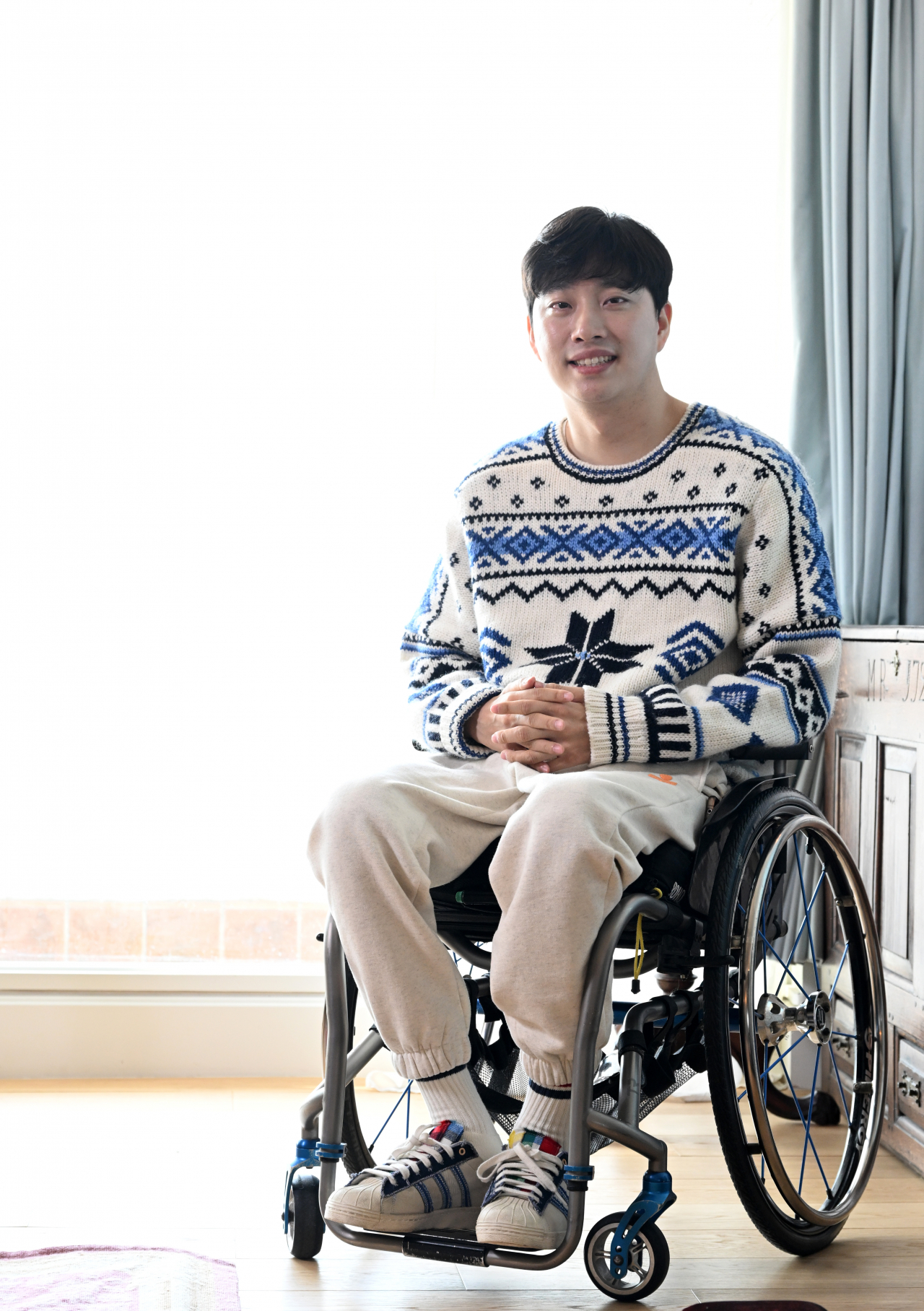
How does a young man react to finding himself, overnight, unable to move his limbs? When doctors pronounce that his neck was broken in a fall and that he will never be able to walk, move his legs or move his fingers again, how does a 28-year-old, who had been celebrating his new job with friends at a club on a Saturday night respond?
There is the classic five stages of grief -- denial, anger, bargaining, depression and acceptance -- that most people experience.
Park We, however, never accepted his loss. He countered the doctors’ grave prognosis with, “If God raises me, I will be able to stand. I will surely stand.”
I meet Park sitting in a wheelchair in the living room of the apartment where he lives with his parents. Sunlight, filtering in through the large windows that face south toward the Han River, floods the room, imparting a luminous glow on Park.
It is now nearly nine years since that fateful day in May 2014 when he had fallen into a 5-meter ditch by the roadside. In those years, Park has regained some movement in his arms and hands through the sheer dint of his rehabilitation efforts, defying the doctors’ dire prediction, and raises a mug of coffee, brought by his mother, to his lips.
I ask Park what he had had for breakfast -- a BBC presenter is famous for asking this of all his interviewees and I thought I would give it a try as it was still morning. “I had something simple, tteok. Oh, you haven’t eaten?” he said. I had not expected to be asked.
His book had led me to contact him for the interview.
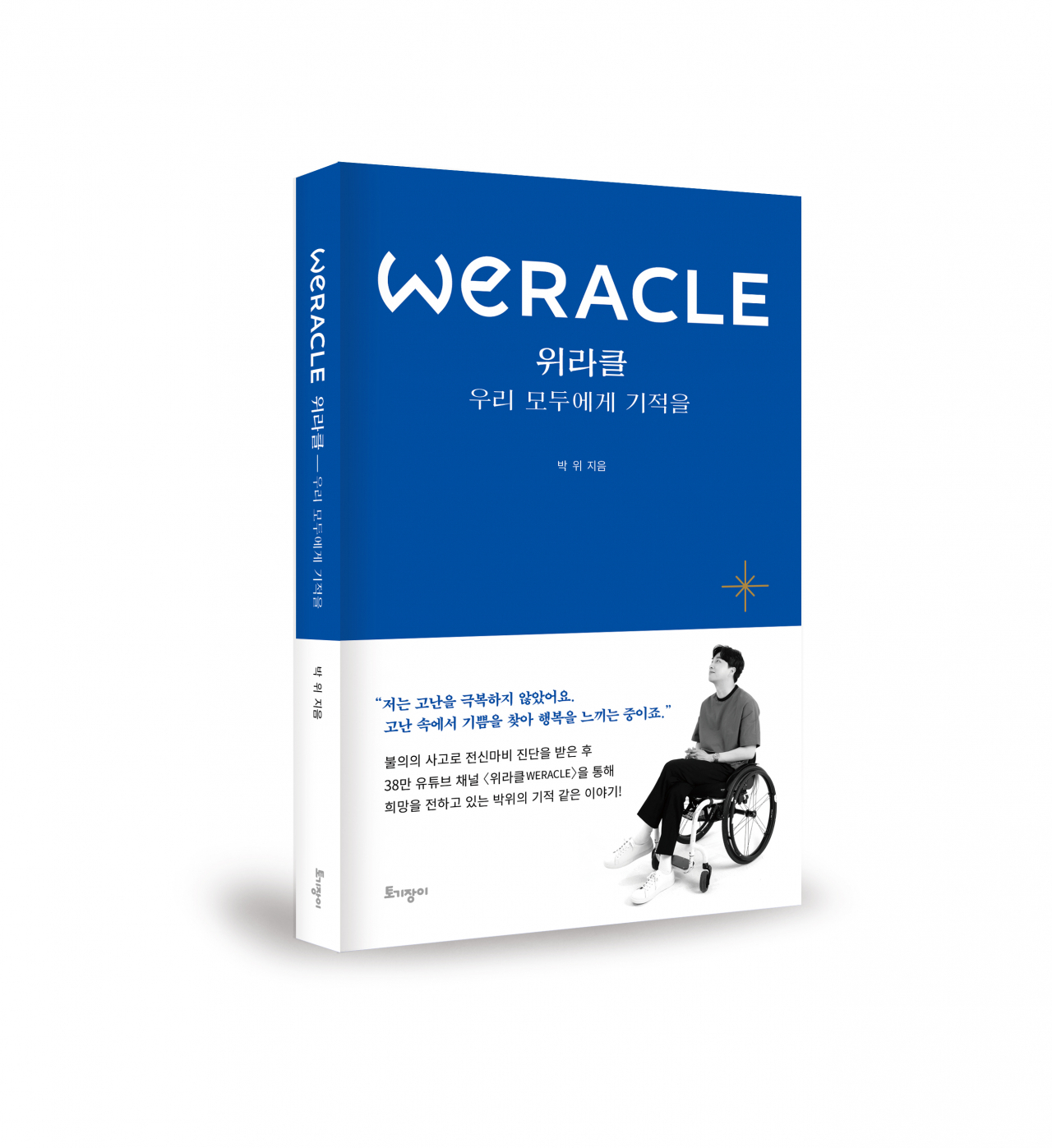
Instagram's algorithm had shown me his posts from time to time. I was impressed and moved by what he did. Bound in his wheelchair, he showed how disabled people could go about living more independently. There were posts of Park speaking at churches, at gatherings, bearing witness, testifying to God’s love.
When his book, “Weracle: Miracle for All of Us,” landed at my desk among a stack of new books sent by publishers, I sent him a message.
When the message went unanswered for weeks, I thought, “Maybe it isn’t the right time.” Then I happened upon a post that said Park was suffering from a bad case of bedsores. Without sensation in his lower limbs, bedsores had gone unnoticed until he saw blood in the shower.
Weeks later, when Park’s Instagram posts showed him almost fully recovered, I contacted his publisher who said she was having dinner with him that evening. A few hours later, Park was on the phone.
Bedsores are not to be taken lightly and he had been amply warned of the potential dangers after suffering from them while in the hospital.
“I can’t say I have completely recovered. It’s been three months but the skin around the sores have not returned to its normal color. It gets darker when I sit for a long time,” he says.
To prevent bedsores, you should continue to shift your position while seated. “Actually, it is best not to sit and lie sideways on the bed,” he says, to minimize pressure against the skin. There is no treatment for bedsores other than removing pressure and letting the ulcers heal with time.
He agrees that he had been taking on a lot of work in recent months, what with the publication of his book, giving talks and creating YouTube content.
Looking back, every day has been a miracle, he says.
Park endured two months in the intensive care unit and six months of rehabilitation therapy and occupational therapy at the hospital, with the love and support of his family and friends, which he writes about extensively in his book. Park’s younger brother took a leave of absence at school to take care of him at the hospital around the clock. His friends fill the ward with jokes and laughter. Members of his church and pastors laid their hands on him, covering every square centimeter of his body with their hands and prayers.
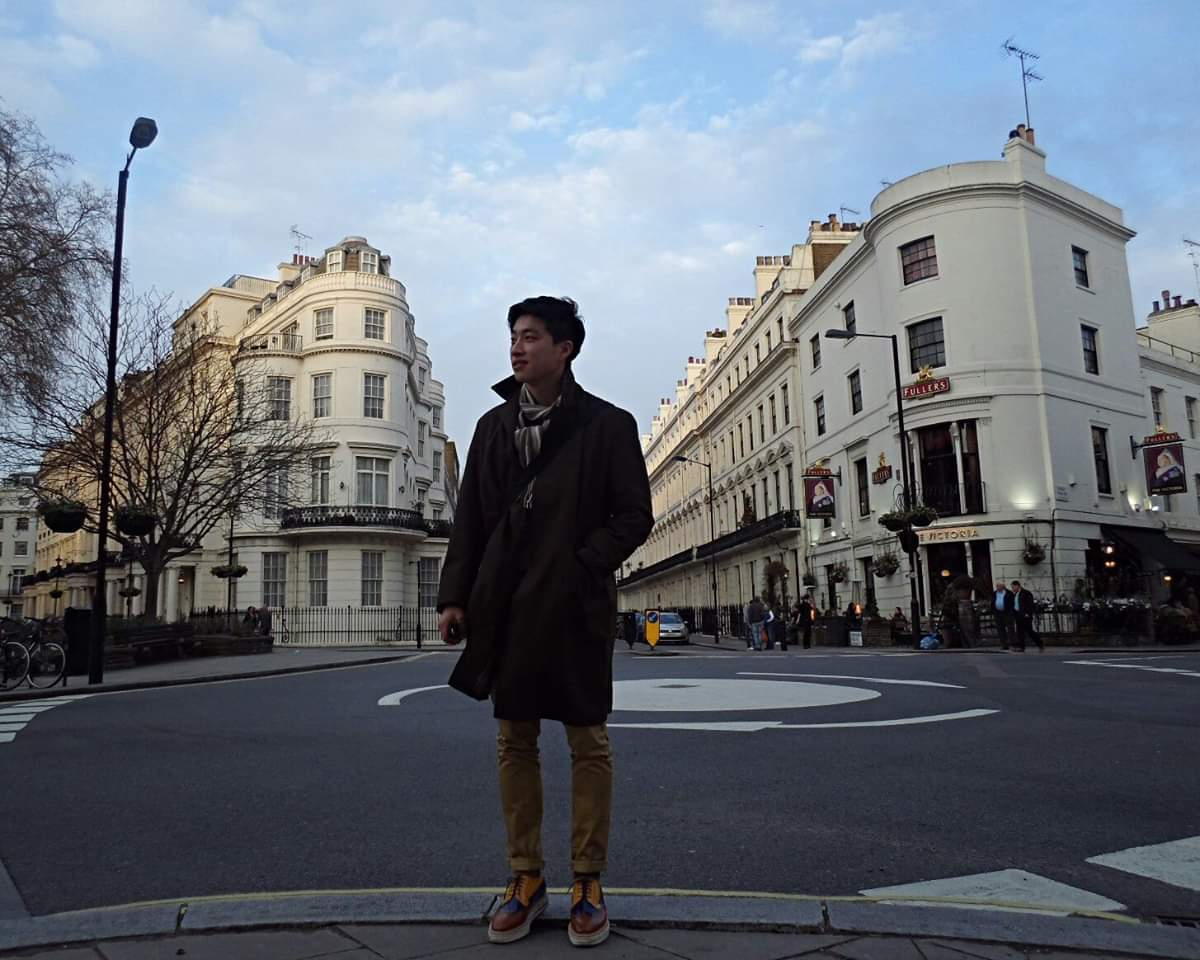
“I think I was brave because I was ignorant. I just believed that if God willed it, I would get up again,” he says. “You might not believe it, but it was a happy time. I experienced things I had never experienced before. So many people, even people that I did not know, cheered me on, held worship services,” he says. “I got thinking a lot about that kind of love,” he says.
“I began to think about passing on the love that I received,” he says. “I began to think it would be great if I, although wheelchair bound, could give hope and courage to others.”
When all that could be done medically was done, Park was discharged.
Going home filled him with dread. “My condition had improved, but there was virtually nothing that I could do on my own,” he says. But he needed not have worried. Once he got home, his friends took turns to visit and stayed with him overnight, helping him get settled at home. “Unlike at the hospital, friends were able to visit without restrictions,” Park recalled of the months immediately after his discharge from the hospital.
While most people who become paraplegic remain in the hospital for two years on average, Park says that his relatively short hospital stay helped him reacclimatize to society more easily. “There is rehabilitation therapy that you do at the hospital, but there are also things that you learn to do on your own outside of the hospital that are part of the rehabilitation process,” he says.
Four years ago, while in Japan on a church outreach program, he declared that he would start a YouTube channel. He had an epiphany that it would be the best way to meet diverse people, unrestricted by time or space. “A week or two later, I got a call asking if I could model for a promotional video for barrier free travel on Jeju Island.”
After that, he had more offers to shoot travel videos and eventually formed a company that produces YouTube content. Today, Weracle has some 510,000 subscribers from all around the world. The videos range from practical tips for the wheelchair bound, such as how to get out of bed to interviews with well-known personalities and people with disabilities. The videos focus on achieving greater independence.
The channel recently celebrated its fourth anniversary and Park now has a new goal.
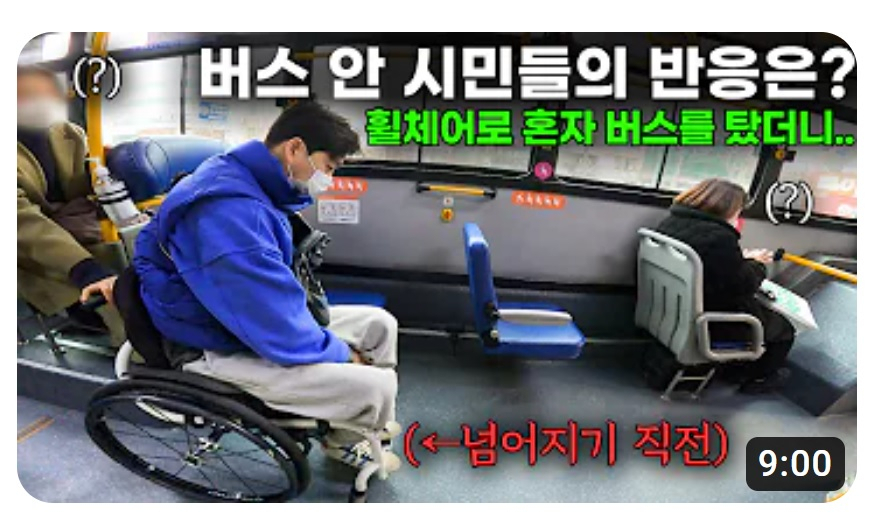
Now that the pandemic is over, he would like go out into the wider world, speaking to people as a motivational speaker. He is already preparing himself with reading, studying English and opening himself up to more varied experiences.
When he says he will stand again, what does he mean?
Does that include standing with an aid of mechanical devices? There has been much progress in this field, I suggest.
“I want to return to my state before the accident. To when I walked, ran and played soccer,” he says without hesitation. “When I have hope that I will walk again, that hope changes my attitude toward life,” he says. “Having such hope motivates my life and gives positive energy,” he explains. “Every day is a miracle.”








![[Graphic News] More Koreans say they plan long-distance trips this year](http://res.heraldm.com/phpwas/restmb_idxmake.php?idx=644&simg=/content/image/2024/04/17/20240417050828_0.gif&u=)
![[KH Explains] Hyundai's full hybrid edge to pay off amid slow transition to pure EVs](http://res.heraldm.com/phpwas/restmb_idxmake.php?idx=644&simg=/content/image/2024/04/18/20240418050645_0.jpg&u=20240419100350)




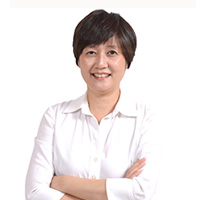

![[From the Scene] Monks, Buddhists hail return of remains of Buddhas](http://res.heraldm.com/phpwas/restmb_idxmake.php?idx=652&simg=/content/image/2024/04/19/20240419050617_0.jpg&u=20240419175937)

![[KH Explains] Hyundai's full hybrid edge to pay off amid slow transition to pure EVs](http://res.heraldm.com/phpwas/restmb_idxmake.php?idx=652&simg=/content/image/2024/04/18/20240418050645_0.jpg&u=20240419100350)

![[Today’s K-pop] Illit drops debut single remix](http://res.heraldm.com/phpwas/restmb_idxmake.php?idx=642&simg=/content/image/2024/04/19/20240419050612_0.jpg&u=)